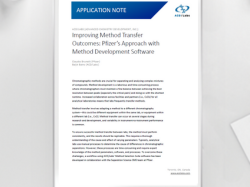Xeljanz® receives EU marketing authorisation for juvenile arthritis
Posted: 23 August 2021 | Anna Begley (European Pharmaceutical Review) | No comments yet
Xeljanz® (tofacitinib) received marketing authorisation in Europe for the treatment of juvenile idiopathic arthritis (JIA) and psoriatic arthritis (PsA).


Pfizer have announced that the European Commission (EC) has approved Xeljanz® (tofacitinib) for the treatment of active polyarticular juvenile idiopathic arthritis (JIA) and juvenile psoriatic arthritis (PsA) in patients two years of age and older who have responded inadequately to previous therapy with disease modifying antirheumatic drugs (DMARDs).
Xeljanz is the first and only oral Janus kinase (JAK) inhibitor approved in the European Union (EU) in four indications: adults with moderately to severely active rheumatoid arthritis (RA) after DMARD failure or intolerance; adults with active PsA after DMARD failure or intolerance; adults with moderately to severely active ulcerative colitis (UC) who have had an inadequate response, lost response or were intolerant to either conventional therapy or a biologic agent; and active polyarticular JIA and juvenile PsA in patients two years of age and older who have responded inadequately to previous therapy with DMARDs.
The polyarticular JIA and juvenile PsA approval is based on data from a Phase III pivotal study in patients with polyarticular JIA as well as other JIA subtypes. The study had two phases: an 18-week open-label, run-in phase, followed by a 26-week double-blind, placebo-controlled, randomised, withdrawal phase for a total duration of 44 weeks.
The study evaluated the efficacy and safety of tofacitinib taken as either a 5mg tablet or as a 1mg/ml oral solution twice daily based on the subject’s body and/or patient preference. The trial met its primary endpoint showing that in patients with polyarticular JIA who achieved a JIA American College of Rheumatology (ACR) 30 response at the end of the run-in phase, the occurrence of disease flare in patients treated with tofacitinib (31 percent) was statistically significant lower than patients treated with placebo (55 percent) at week 44.
Efficacy in the juvenile PsA subtype population was consistent with polyarticular JIA. Disease flare was defined as a 30 percent or more worsening in at least three of the six variables of the JIA ACR core set, with no more than one of the remaining JIA core response variables improving by 30 percent or more after randomisation. In general, the types of adverse drug reactions in patients with polyarticular JIA and juvenile PsA were consistent with the known safety profile of Xeljanz.
Two formulations were approved, a tablet and a new oral solution (weight-based dosing). Furthermore, the EC has approved Xeljanz prolonged-release 11mg once-daily tablets for the treatment of adult patients with active PsA who have had an inadequate response or intolerance to methotrexate or other DMARDs. This once-daily treatment is an alternative to the currently approved Xeljanz 5mg twice-daily treatment of PsA.
“Many patients living with polyarticular JIA and PsA require an injection or an infusion when receiving treatment, which can be challenging for both these children and their caretakers,” statedAna Paula Carvalho at Pfizer. “We are proud to make these new options available in the EU as Pfizer continues to advance the science and understanding of medicines like Xeljanz, which has been studied in more than 50 trials across clinical programs worldwide.”
Related topics
Big Pharma, Clinical Trials, Dosage, Drug Development, Drug Safety, Drug Targets, Regulation & Legislation, Therapeutics
Related organisations
Related drugs
Related people
Related diseases & conditions
juvenile idiopathic arthritis, Juvenile psoriatic arthritis (JPsA)









